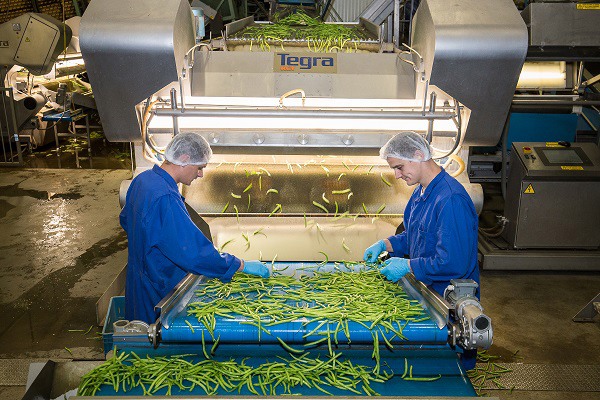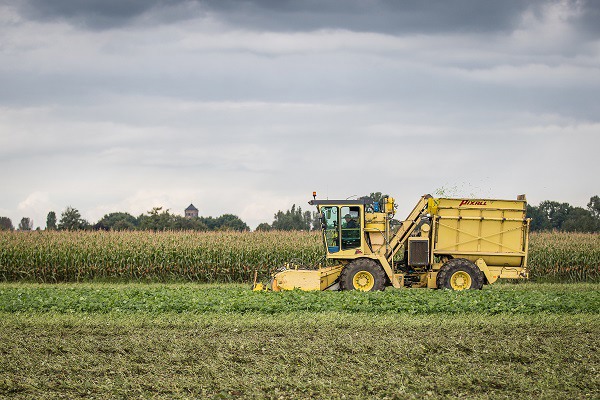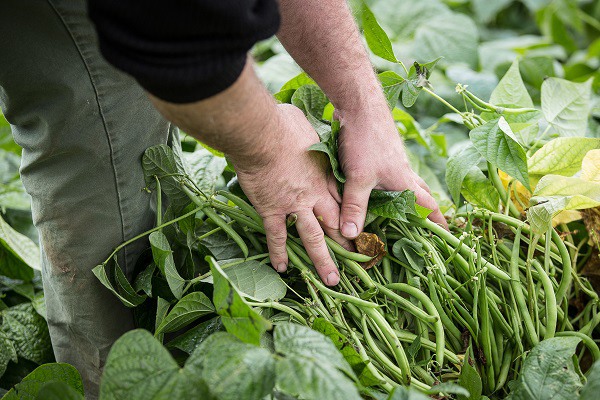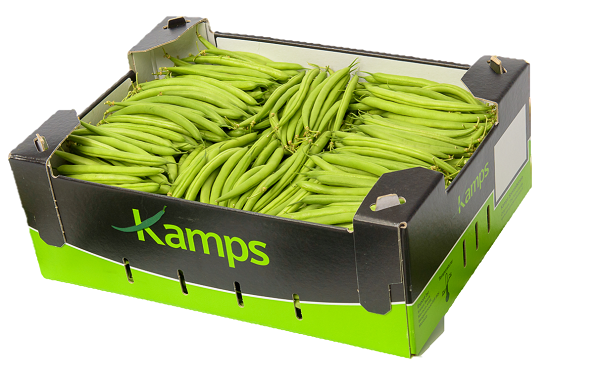Niels Borst used to sell the entire fruit and vegetable range. As of March 1, he is Kamps Sperziebonen's commercial manager. Yet, Niels says, he quickly settled into the beans. "When you start at Kamps, you become completely immersed within a few hours. The great thing is that we do all cultivation, harvesting, and processing in-house. But that doesn't make it any less dynamic," he begins.

Kamps is a major player in this category. With more than 1,500 hectares of acreage in the Netherlands, Germany, Morocco, and Senegal, the company is one of the Netherlands' largest green bean suppliers. Supplemented by partner cultivation in Egypt, Kamp can serve wholesalers, retailers, and the processing industry year-round. Along with green beans, their range includes string beans, French beans, haricot verts, and spring onions.
"Green bean consumption has been stable for years now. You could consider it an old-time favorite. French beans seem to be becoming less popular. In the Netherlands, around the holidays, the focus is noticeably very much on string beans and haricot verts," Niels says. Kamps sells most of its products in the Netherlands, Belgium, United Kingdom, Germany, and now Scandinavia. The company also supplies beans as semi-finished - trimmed or halved - to the processing industry.
Sense of family
The number of players in the bean sector is manageable. "There are three big Dutch players. But you can never think that won't change; other cultivation areas always present themselves." According to Niels, Kamps is unique in that it is still a real family business. Harry Kamps founded the company more than 50 years ago.

Today his sons, Sjaak and Marius, still run it. "We've become a large company, but despite that, we've always managed to keep that sense of family. Our customers are genuinely still in close contact with the growers. We're not dependent on third parties. That has a definite charm."
1,800+ workers in Morocco, Senegal
In the Netherlands, the beans are harvested mechanically; in Senegal and Morocco, that is done by hand. Kamps has complete control of cultivation in those countries. "We employ more than 1,800 people at both cultivation sites. But, we don't focus on size but quality. We manage everything ourselves, so our specialists can work as customer and chain-oriented as possible year-round. You can train your people well. If you explain why certain methods yield better products, the end product's quality benefits too," Borst explains.

Although Kamps suppliers green beans per client demand, Niels has noticed that many retailers prefer selling these beans loose. "Almost everyone used to sell loose beans; then the trend shifted to packaged beans. Now that plastic use is again being reduced as much as possible, the trend is moving back toward loose. That prevents wastage too. After all, if you find two loose beans of inferior quality, you don't have to throw the whole batch away."
Not all vegetables are equal
He says the main issues are in the area of, say, crop protection agent regulations. "We ensure this with all possible certificates and quality marks, but the rapidly changing regulations remain challenging. Retailers would like to see a hallmark on the total assortment, but beans aren't cauliflower. Every crop has its own instructions," continues Niels.
Niels does not consider the current dry weather in the Netherlands a threat. "The Netherlands has good irrigation possibilities. But it's very hot in Morocco at the moment. That means the plants carry less fruit, and the supply could fluctuate. We're very closely involved, for example, in steering cultivation and planning promotions. That's also our strength. We manage the entire chain, so we can change gear very quickly. We also have to plan well in advance - we have 40 to 60 trucks on the road every day."

Keeping its Moroccan and Senegalese farms in mind, Kamps is considering expanding within the bean category. "We can't grow things like snow peas or sugar snaps at our existing farms, though they fit perfectly into our category. That's also where we'll keep specializing. Kamps won't be selling pumpkins any time soon," concludes Niels.
Niels Borst
[email protected]  Kamps Sperziebonen BV
Kamps Sperziebonen BV
Ervesestraat 4
6595 PE Ottersum
T: +31(0)6-53783409
[email protected]
www.kamps-sperziebonen.nl










